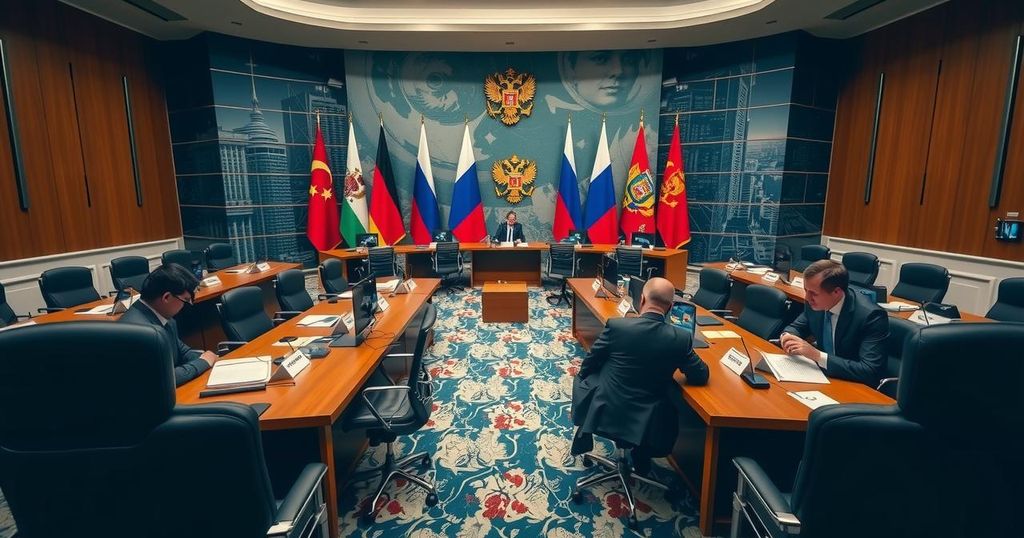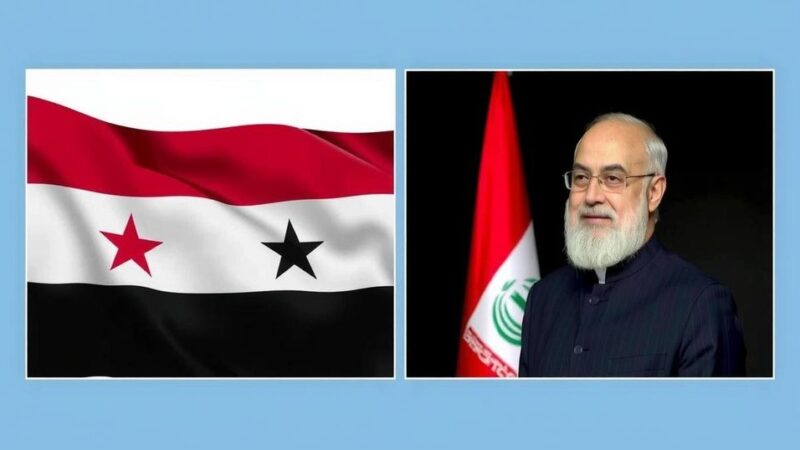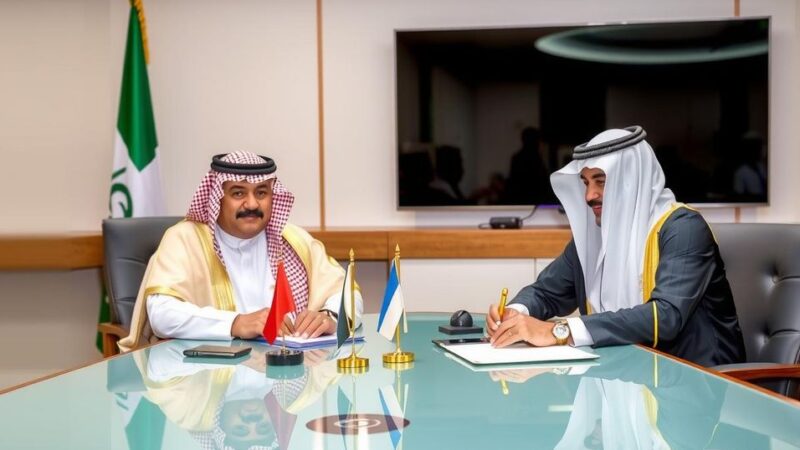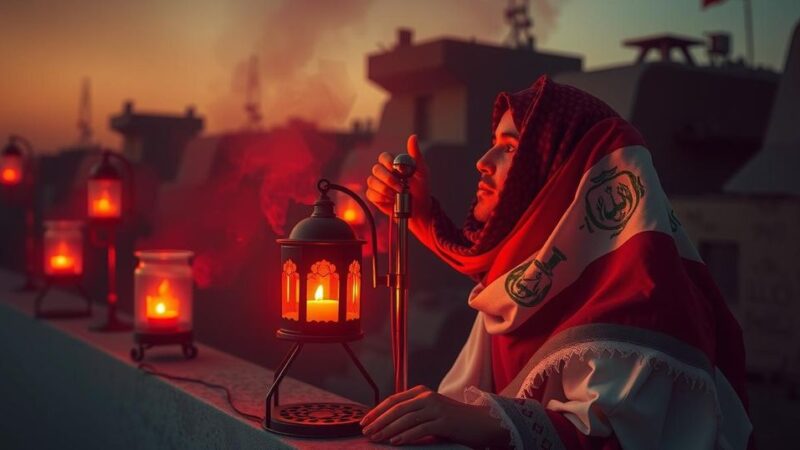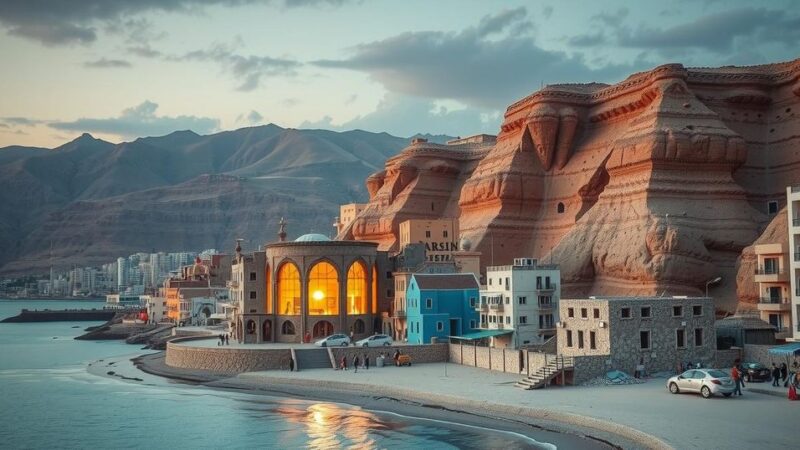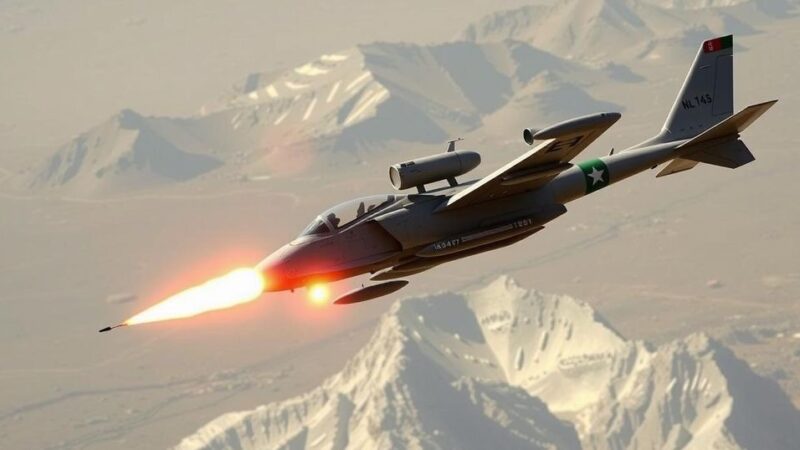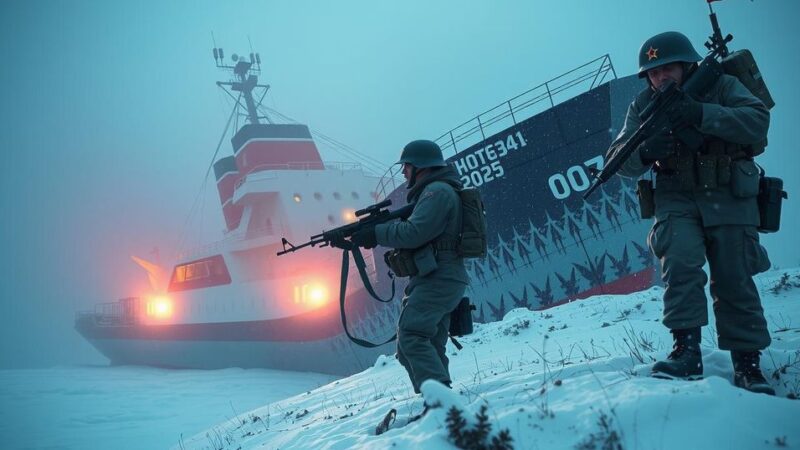The BRICS summit, hosted by President Putin in Russia, will proceed without the attendance of Brazilian President Lula da Silva and Cuban President Miguel Diaz-Canel due to health and energy issues, respectively. The summit highlights the bloc’s recent expansion with new members and serves as an effort by Russia to reinforce its global standing.
This week’s BRICS summit, hosted by President Vladimir Putin in Russia, faced significant disruptions as both Brazilian President Lula da Silva and Cuban President Miguel Diaz-Canel announced their absence due to unforeseen circumstances. Yury Ushakov, an aide to the Kremlin, confirmed that these two leaders would not be attending the summit, which commenced on October 22. President Lula da Silva, aged 78, has experienced health issues, including a minor brain hemorrhage following a fall at his residence, prompting him to participate via videoconference. Meanwhile, President Diaz-Canel is reportedly contending with “serious energy problems.” BRICS, an acronym for Brazil, Russia, India, China, and South Africa, represents a bloc of emerging economies that often positions itself as a counterbalance to Western dominance. Notably, this summit marks a pivotal moment as four new members—Egypt, Ethiopia, Iran, and the United Arab Emirates—joined the coalition at the beginning of 2024, marking the first expansion since South Africa’s inclusion in December 2010. Furthermore, Cuba has expressed its interest in joining BRICS, having sent a formal request to President Putin on October 8, aspiring to become a partner country. In light of Russia’s increasing isolation on the geopolitical stage, coupled with its recent alignment with nations such as North Korea, the Kremlin seeks to leverage this summit to project strength and influence to Western powers. Officials within the government have characterized this event as one of Russia’s most significant foreign policy undertakings in recent history.
The BRICS summit serves as a platform for collaboration among emerging economies, enhancing their influence on global economic and political standards. The inclusion of new members such as Egypt, Ethiopia, Iran, and the UAE aims to bolster the group’s stature and broaden its collective voice in international affairs. Amidst the backdrop of political estrangement faced by Russia due to ongoing conflicts and sanctions, the summit is intricately tied to the Kremlin’s strategic initiative to forge deeper alliances and reassert its role on the world stage.
In summary, the BRICS summit in Russia has been notably impacted by the absence of key leaders from Brazil and Cuba, reflecting both health concerns and socio-economic challenges. As the summit unfolds, the integration of new member states into BRICS signals a strategic move towards greater cooperation among emerging economies, while Russia attempts to assert its relevance amidst growing international isolation.
Original Source: kyivindependent.com

